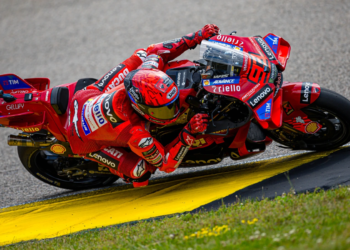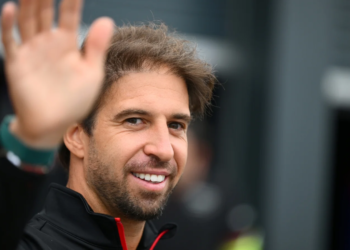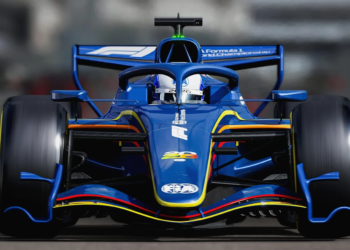McLaren is not yet where it wants to be but it has made giant strides in 2019 after a lacklustre finish to its horrible 2018 campaign. Motorsport Week’s mid-season review continues with the ongoing tangerine dream.
High point: Strong France/Austria displays in which it gapped midfield
Low point: Unfortunate first-lap clash in China
2018 was supposed to herald a new era for McLaren but instead it merely exposed the weaknesses within an organisation that had lost its way and which needed a reshuffle. The latter half of the year drifted into an insipid and humiliating farewell tour for Fernando Alonso (oh, and that other bloke, Belgian, remember him?) as it slumped to an abject sixth (in reality seventh) in the standings. The tone changed. Humble pie was eaten. Finally the slump has been halted and instead this year has been far better than anyone could have expected. McLaren has lofty ambitions and reaching that ceiling will take years not months but the opening half of 2019 has provided several reasons for optimism. Its MCL34 looked shaky pre-season and its drivers talked down hopes, but the car has been developed strongly, with the updates not only correlating with expectations but then being exploited. A car that had low-speed weaknesses early in the campaign has now performed well at a variety of venues, on different surfaces, and in different temperatures. Year-on-year McLaren has been the most improved team, gaining almost one per cent on the ultimate theoretical best, and that is not to be sniffed at.
.jpg)
Operationally McLaren has been strong. It has not always had the fourth-best car but it has typically maximised its potential and strategies to make it appear head-and-shoulders above the remainder of the midfield. It has been assisted by two compliant drivers who have obeyed instructions and placed the team’s needs above their own. Carlos Sainz Jr. and Lando Norris have developed quite the bromance this year, with Sainz Jr. embracing the stability of a two-year deal now free from Red Bull, and Norris taking to F1 like the proverbial duck to water. Early confirmation of their 2020 contracts was a boon for both drivers and team. Off-track the arrival of Andreas Seidl has given McLaren the Team Principal figure they have needed for years. The impressive Seidl has given a cutting edge to McLaren previously lacking, has viewed the organisation with fresh eyes, and has already enacted changes, most prominently giving the green light to the construction of a new wind tunnel. McLaren’s oft-criticised matrix structure was shelved and it has reverted to a more traditional set-up. There is an engineering department under the leadership of Technical Director James Key, a production department led by Piers Thynne and a racing side under the responsibility of Andrea Stella and Paul James, with the respective divisions reporting to Seidl. It has been a fresh start with a new dynamic; McLaren now has a platform upon which to build both for 2020 and the next cycle of regulations. The only major question mark is whether it can re-emerge as a title force, or even race-winning force, as a customer team…
There was a ‘Through the Looking Glass’ moment to Carlos Sainz Jr.’s career in mid-2018. In effect unfavoured by Renault, and having left a few noses out of joint at Red Bull, he was left with McLaren. At the time his assertions that this was the fresh start he desired appeared unconvincing. It felt like a marriage of convenience and yet 12 months down the line it is a partnership that has flourished. Sainz Jr. has joined McLaren at the right time, but he also put substantial effort into the relationship, buying a flat in Weybridge – near to McLaren’s base – and immersing himself to life at the organisation. Formula 1’s Smooth Operator had a rough start: an engine failure in Australia followed by unfortunate clashes in Bahrain and China, but since then he has missed the points just once – in Canada – which came after a brake issue that necessitated an early stop and marathon stint on tyres that eventually cried their last. His qualifying pace has not been his strongest attribute in 2019 but he has made up for that in race trim: sixth in Monaco, France and Canada, followed by back-to-back fifths in Germany and Hungary, where there was a certain poetry in keeping Pierre Gasly at bay. He was exceptional from the back in Austria to score eighth, which would have been more without sustaining mysterious front wing damage. It turns out that chili and orange is a rather potent combination.
McLaren had faith that Norris was ready to be its youngest ever Formula 1 entrant for 2019 and the milk-obsessed Briton has rewarded that trust handsomely. He has more Q3 participations than any other midfield driver and has not looked out of place in a competitive group of experienced heads. He has approached this year sensibly, walking before he can run, valuing gathering lessons over the risk of damaging a front wing. That was in evidence in Australia, as his conservatism cost him a point or two, and on several first laps, where he has been tentative to avoid binning the car. Only in Spain, where he clashed with Lance Stroll, has he properly erred. He can also consider himself unfortunate not to have scored more than 24 points. He played the team game in Azerbaijan and Monaco, suffered failures in Canada (a fire that melted the brakes/suspension) and France (hydraulics) while a power problem in Germany and slow pit stop in Hungary also skewered his chances. Through that he has maintained a dignified maturity and not let frustration turn into mistakes. Norris did not mention a battery issue that was the difference between Q1 and Q2 in Germany, and instead the problem was only revealed by Seidl later on, a testament to Norris not throwing the team under the bus. If his F2 campaign was slightly disappointing then his rookie F1 season has so far been hugely encouraging.



.JPG)
.JPG)



